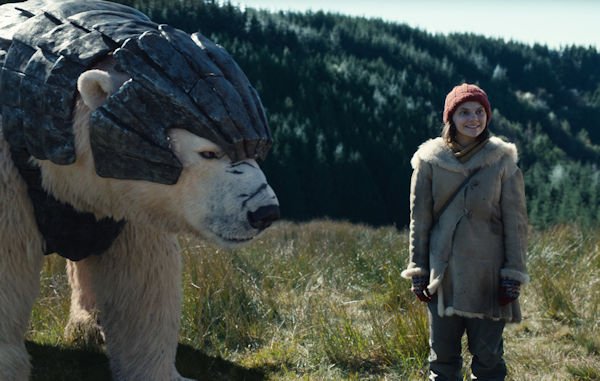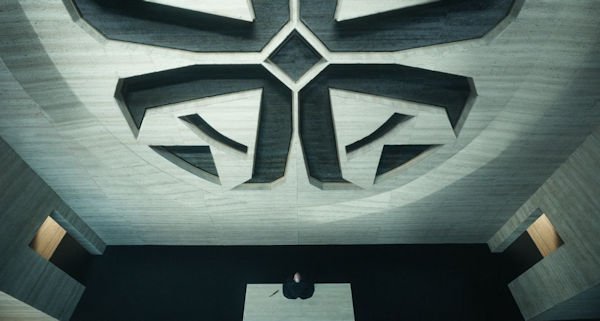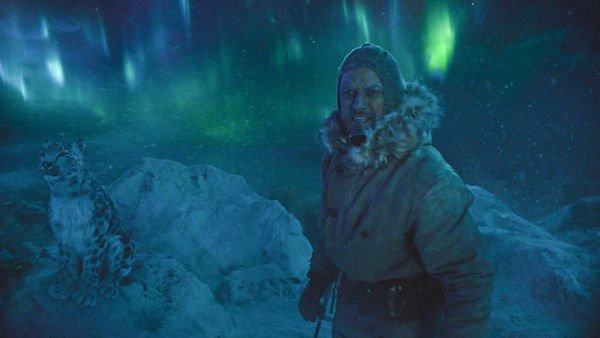 Back in 1999, it was announced that both The Lord of the
Rings and Harry Potter were becoming film franchises. There was both
excitement and apprehension. Excitement because fans were going to get movies
based on their favorite fantasy books, and apprehension because—at the time—so
many movies based on fantasy or science fiction books had not made the
transition from book to screen as smoothly as fans had hoped for. However, the
success of both movies’ franchises left everyone wanting more media adaptations
of popular books.
Back in 1999, it was announced that both The Lord of the
Rings and Harry Potter were becoming film franchises. There was both
excitement and apprehension. Excitement because fans were going to get movies
based on their favorite fantasy books, and apprehension because—at the time—so
many movies based on fantasy or science fiction books had not made the
transition from book to screen as smoothly as fans had hoped for. However, the
success of both movies’ franchises left everyone wanting more media adaptations
of popular books.
Philip Pullman’s His Dark Materials trilogy was picked up by New Line Cinema Studios, the same one that did The Lord of the Rings movies. Both the trailers and the cast presented a promising movie, which it was given the circumstances. Some details remain unclear, but due to a combination of both “studio interference” and “a confused test audience,” The Northern Lights—The Golden Compass in the US—was released in 2007 with mixed reviews and a box office that left no hopes for the sequels to be made.
However, the success of both Game of Thrones and The Walking Dead had everyone wondering whether or not some books and graphic novel series would be better off as a TV series rather than movies. When the BBC announced that they were readapting His Dark Materials for television as a mini-series fans—and HBO—were excited to see this trilogy receive the media adaptation it deserved. And, in 2019, season one of His Dark Materials was released to the world.

Each of the eight episodes explore the parallel world of Pullman’s world and are named after the chapters in The Northern Lights/The Golden Compass. Each of the episode’s titles not only give book readers a nod to the most plot-driven moments from the first book, but also hints to show viewers what to expect in each episode throughout the season. Each episode is about an hour long and presents the balance amongst the character development, the plot development, and the worldbuilding that were all lacking and rushed in the 2007 movie.
The cast does a great job portraying all the characters. Dafne Keen (from the movie, Logan) and James McAvoy (who has portrayed both Mr. Tumnus in The Lion, the Witch and the Wardrobe and a young Professor X in the X-Men movies) are Lyra Belaqua and Lord Asriel. James Cosmo—from Game of Thrones as Lord Commander Mormont—plays one of the Gyptians. There is a cameo by a Harry Potter actor (but, you’ll have to figure out who it is on your own). Lin-Manuel Miranda is a believable Lee Scoresby, but it is Ruth Wilson’s portrayal of Mrs. Coulter that is the most memorable in this series. All of the actors present enough of themselves into the characters to deliver their own presentation of the characters, which are different enough from the actors’ renderings in the 2007 movie while remaining faithful to the books.

The pacing of this series is appropriate. This is because each episode takes viewers to each setting the protagonist—Lyra—travels to throughout the season. From Jordan College to London to the seaports to the Magisterium to our London and, to the North. The pacing allows the audience to get an understanding of the world and the various societies the characters reside and travel. It permits worldbuilding and an understanding of the conflicts presented and how and why they are revealed as well. The viewers are able to keep track of all of the events and the locations easily.
The series presents more insight into the concept of daemons and the dominance of the Magisterium. Daemons are the souls of humans manifested outside of their bodies and they take the shape of an animal, which is supposed to represent the overall characteristic of each individual. The proximity of daemons is lacking in this adaptation, but the concept is explained enough for the audience to understand its relevance. Lyra’s world is a theocracy and controlled by the Magisterium. Throughout season one, we are presented with insight into how the Magisterium operates and what they are willing to do in order to maintain power. They are a force to be reckoned with, but many are willing to oppose them in the name of freedom. The presentation of the Magisterium overtakes the daemons (and Dust) at times, but this could be more about budget than plot development.

One aspect that made this adaptation more inclusive to the audience was the inclusion of material from the other books in the author’s series. The most notable is the introduction to a character from our London. This subplot provides the audience not only with backstory omitted from the books, but also demonstrates the power wielded by the Magisterium.
Season one of His Dark Materials starts similar to the movie but ends with the same cliffhanger as the first book in the trilogy. This cliffhanger lets the audience know the story continues and the mysteries from this season, which were not all resolved for some reason, remain a mystery to the viewers and to Lyra. In addition, the series’ title reflects both the tone and the mood of the series. Season two has been confirmed, so we won’t have to wait too long for the long-awaited media adaptation of The Subtle Knife.

In all, His Dark Materials: Season One is a decent media adaptation of The Northern Lights/The Golden Compass. The mini-series is a great improvement on the movie in more ways than one, but didn’t use the book enough as a source, especially in the middle episodes. And, while a few qualms cannot be overlooked by book fans, the series follows the books enough that they are able to enjoy it as much as viewers who have yet to read the them.

